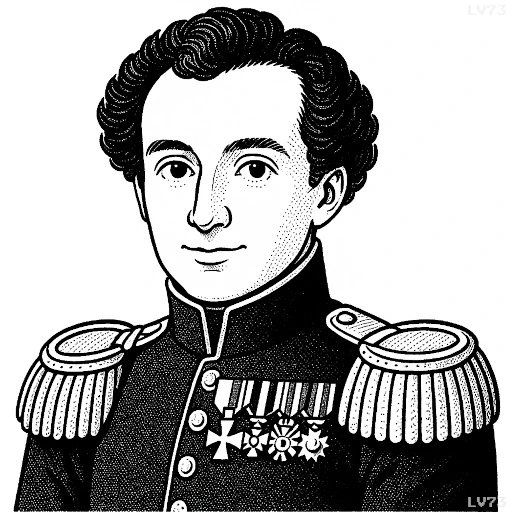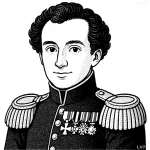“Two qualities are indispensable: first, an intellect that, even in the darkest hour, retains some glimmerings of the inner light which leads to truth; and second, the courage to follow this faint light wherever it may lead.”

- July 1, 1780 – November 16, 1831
- Born in the Kingdom of Prussia (now Germany)
- Military officer and military theorist
table of contents
Quote
“Two qualities are indispensable: first, an intellect that, even in the darkest hour, retains some glimmerings of the inner light which leads to truth; and second, the courage to follow this faint light wherever it may lead.”
Explanation
In this statement, Clausewitz emphasizes the importance of intellectual clarity and courage in moments of crisis, particularly in the context of leadership and decision-making in war. The “intellect” here refers to a leader’s ability to think clearly and discern truth even when confronted with chaos, confusion, or uncertainty—the “darkest hour.” The “inner light” symbolizes a guiding moral or strategic compass, the ability to identify the essential truths of a situation despite the fog of war or external pressures. However, this intellectual clarity alone is not enough; the leader must also possess the courage to act on these insights and pursue the path that the truth reveals, no matter how difficult or risky it may seem. In essence, Clausewitz suggests that the greatest leaders are those who can see through the darkness and then bravely follow the path of reason, even when the outcomes are uncertain.
This principle can be seen in historical examples where leaders had to navigate through uncertainty and moral ambiguity. During World War II, for example, Winston Churchill demonstrated both these qualities when, despite the seemingly overwhelming odds against Great Britain in the early years of the war, he remained steadfast in his belief that victory was possible. His ability to retain clarity of thought in the midst of dire circumstances, combined with his unwavering courage to act on that belief, kept the Allied cause alive. Similarly, Abraham Lincoln, during the American Civil War, had the intellectual foresight to recognize the moral imperative of abolition and the strategic necessity of preserving the Union, even when those principles faced immense opposition, and the war’s outcome seemed uncertain.
In modern contexts, these qualities are just as important. Leaders in fields like business or politics must often make decisions in the face of economic crises or political upheaval, where the truth of a situation might be clouded by misinformation, pressure, or fear. The ability to retain clear judgment and have the courage to follow that judgment, even if it leads into uncharted or risky territory, is often what separates successful leaders from those who falter under pressure. Clausewitz’s insight underscores the value of resilience and moral courage—traits that allow leaders to navigate through the darkest of times with clarity and purpose, staying true to their values and goals even when the path forward is difficult and uncertain.
Would you like to share your impressions or related stories about this quote in the comments section?

